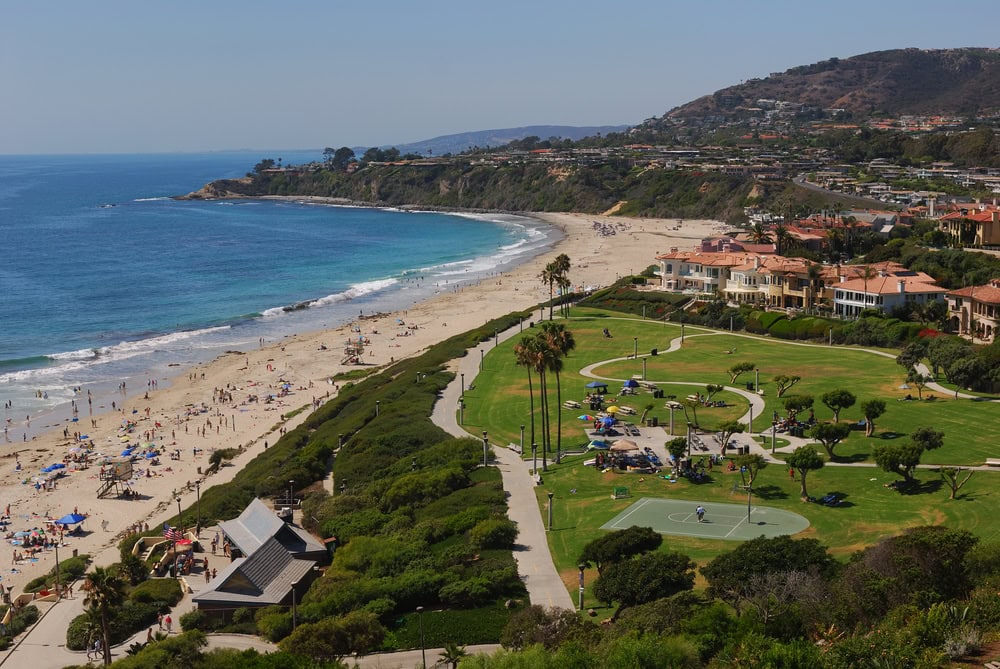As we all know, buying a home is a big financial decision, and there are many factors to consider besides the price of the home. Another important expense to consider when buying a home is closing costs.
Closing costs are taxes and fees associated with the sale of a home, such as title insurance and loan fees. Let’s break down what closing costs are in California, who pays them, and what you can expect to pay as a buyer and seller.

What are the average closing costs in California?
In addition to a down payment, homebuyers also need to pay closing costs to get the keys to their new home. Generally speaking, you can expect closing costs in California to be between 2%-5% of the purchase price. However, keep in mind that the amount of closing costs depends on several factors, such as the purchase price of the home, the type of loan and any adjustments negotiated with the seller.
For example, if you buy a home in Los Angeles where the average sales price is $1,050,000, closing costs may range from $21,000 to $52,500. Or, let’s say you want to buy a home in San Francisco, where the median sales price is $1,403,500. Closing costs for a home here can cost you between $28,070 and $70,175.
Who pays closing costs in California?
So, who pays the closing costs in California? In most transactions, the buyer and seller will pay closing costs. But buyers and sellers will pay different closing costs and may have different total closing cost amounts. Another thing to remember is that buyers typically pay closing costs out of pocket, while sellers’ closing costs are typically deducted from the home sale proceeds.
California buyer closing costs
For California home buyers, closing costs can be expected to be 2%-5% of the purchase price. In most cases, you will pay a deposit, usually 1% to 3% of the home price, once the two parties come to an agreement during the home buying process. This deposit will be deducted from your closing costs, reducing the total due at closing. Here are some common closing costs buyers pay:
- Assessment fee: Home appraisals typically range from $300 to $500 and are usually paid separately at the time of service. However, if not, you will need to pay a fee at closing.
- Inspection fees: Although not required, a home inspection is highly recommended. The cost of a home inspection generally ranges from $300 to $500 and is usually paid at the time of service. However, if not, payment will be required at closing.
- Loan origination fee: Some lenders charge a fee to create the loan. When you’re shopping around for a lender, ask what they cover and if you can negotiate to avoid high fees.
- Loan processing fee: In addition to the origination fee, your lender may charge fees to process your loan. This typically covers coverage and related services. It is recommended to discuss this fee with your lender to see what is covered and if it may be waived.
- Loan discount points: If you buy points to get a lower interest rate, you’ll usually pay a one-time fee at closing. Each point can lower your rates by 0.25% to 0.5%. Before purchasing points, consider your long-term plans, such as how long you plan to own the home or whether you plan to refinance.
- Private Mortgage Insurance (PMI): When your down payment is less than 20%, you usually have to pay PMI. Some loans allow PMI to be paid up front at closing, giving you the option of a higher upfront cost or increased monthly payments.
- Title Insurance: Title insurance is a one-time fee paid as part of the closing costs. Buyers often carry both lender and owner title insurance.
- Home Insurance: Your annual home insurance premium may be included in your closing costs in California.
- Homeowners Association Dues: If your property is part of a homeowners association, you may be required to pay one month’s dues upfront at closing. These fees vary and add to maintenance and operating costs.
- property tax: As part of your California closing costs, you may be required to prepay a portion of your property taxes at closing.
California seller closing costs
Closing costs incurred by California sellers may vary, but here are some common fees and costs sellers pay:
- Real estate agent commission fees: These fees can be a significant cost for sellers. Commission fees may vary and are subject to negotiation. Sellers should discuss their options with an agent.
- Homeowners Association Fees: If the property is part of an HOA, the seller may be required to pay various fees. These fees may include HOA transfer fees, outstanding payments, and fees that may be incurred to obtain the HOA documents required by the buyer. The exact fees will depend on the HOA’s rules and regulations.
- property tax: The seller is responsible for any property taxes accrued but not yet paid prior to the closing date. These unpaid property taxes are usually prorated based on the months you owned the property.
- Title Insurance: As part of a California seller’s closing costs, the seller may pay for owner’s title insurance. Typically, this cost is based on the sales price of the property.
- Transfer tax: In California, the state imposes a tax on the transfer of property ownership. The seller may be required to pay a one-time transfer tax as part of the closing costs. Local governments (such as counties and cities) may also impose additional taxes.
Median home sales price data from the Redfin Data Center for July 2024.

